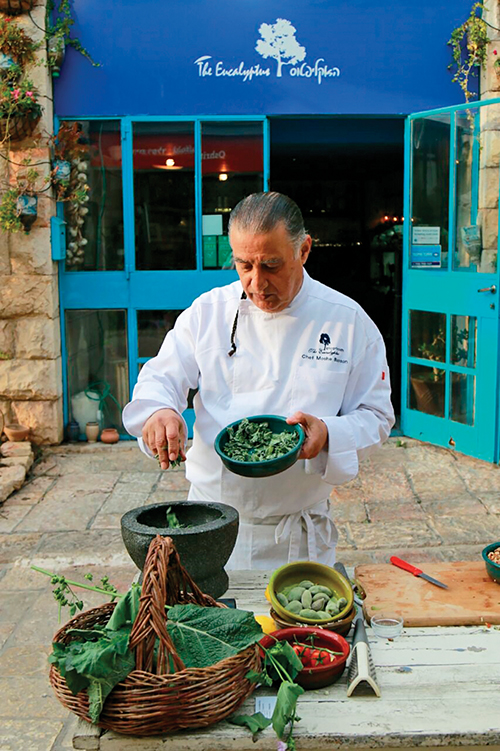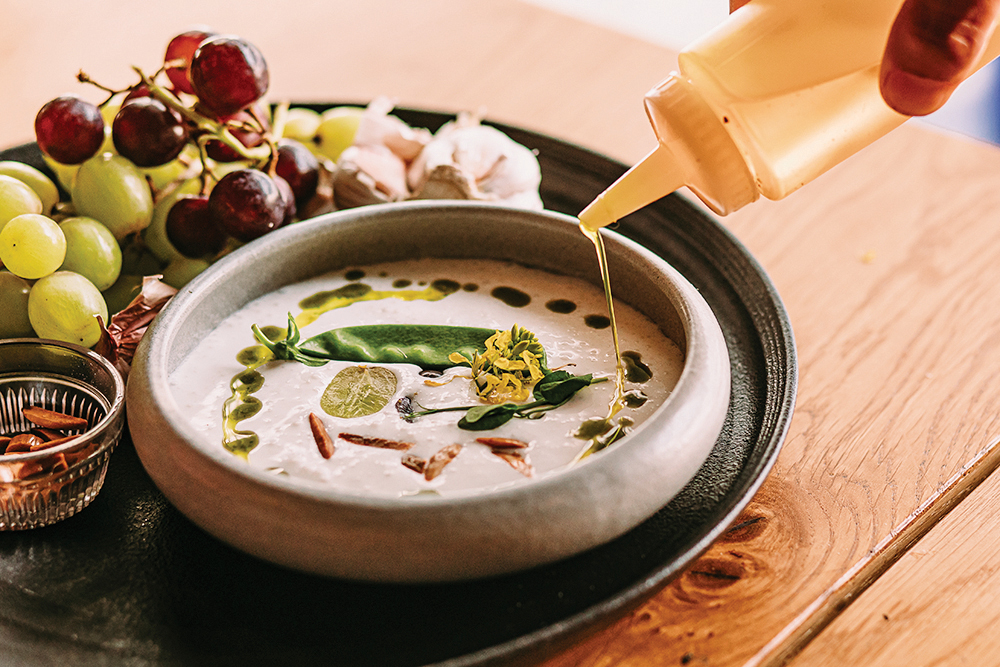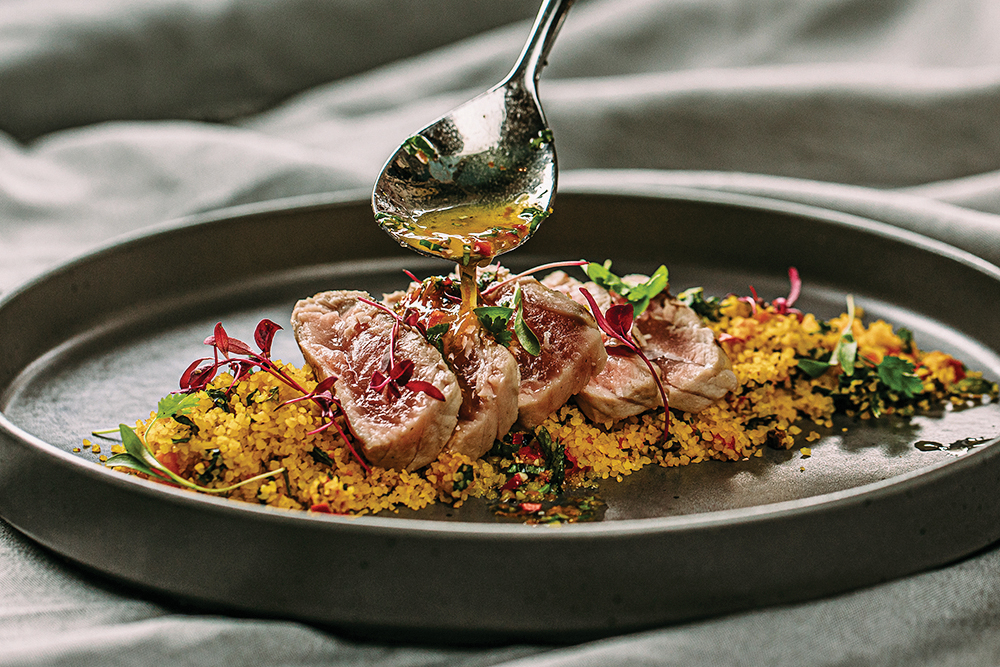
This is a cookbook that would make the redactors of the Talmud proud! Like the masters of the Talmud, chef Moshe Basson combines facts with remarkable stories, citing Biblical verses as prooftexts for many of his ingredients and recipes, and allows the reader a full culinary and educational experience.
The strictly kosher “Eucalyptus Cookbook,” like the Talmud, is a repository of wisdom and tradition. Basson offers more than mere instructions; his recipes are guides to a way of life. And just as the Talmud provides commentary and interpretation of Jewish law and ethics, his cookbook often includes anecdotes, tips and variations that reflect cultural practices and personal experiences. Basson’s recipes, again like the Talmud, are dynamic, evolving texts influenced by generations of users, from his own family and the families of others he meets along the way. Both celebrate the richness of tradition while leaving room for innovation and personal interpretation.
Eucalyptus is Moshe Basson’s Five-star restaurant in Jerusalem. It is named for the eucalyptus tree that grew where the first incarnation of the establishment took hold. He is a master of local cuisine: Israeli cuisine is a vibrant tapestry woven from diverse cultural influences, blending Middle Eastern, Mediterranean, North African and European flavors. It’s characterized by bold spices, fresh herbs and abundant produce. Iconic dishes like hummus and shakshuka or specialties like makloubeh or baklava showcase the fusion of tradition and innovation that defines Israeli gastronomy.

There are well over 100 recipes in the cookbook offering something for everyone, whether carnivore or vegan, sweet-toothed or gluten free. Basson’s family background and upbringing shape his culinary perspective profoundly. Childhood memories of meals, flavors and traditions inspire his cooking style and choice of ingredients. He can frequently be found foraging for the fresh herbs and produce he uses daily in the restaurant. His Iraqi, Jewish and Israeli cultural heritage instills the values of hospitality and authenticity, influencing everything from technique to presentation, creating a deeply personal culinary identity.
I was worried at first that the recipes would be too complicated for my lazy cooking style; I prefer recipes with fewer than 10 ingredients, one bowl, and one pan or pot. Indeed, some are and rightly so. But there are just as many with the right fit for my limited skills. The key to success in making the recipes is in the spices and freshness of ingredients — don’t skimp! The flavors of the “Eucalyptus Cookbook” are exceptional, unique and incomparable; the magical and often mystical quality to his food is unrivaled anywhere.
Basson’s White Bean Soup is a perfect example of taking a basic dish and creating a masterpiece with it. As he explains in the cookbook, white beans and white bean soup were a staple among the simple workers who wanted a fast, nutritious and filling meal, serving the soup over rice. His version includes celery stalks and a fine mixture of spices.
My father’s family spent a few decades in Cuba before arriving in the United States and hence, my Ashkenazi mother needed to learn a few Hispanic dishes, including Arroz con Pollo, chicken and rice. Basson’s Makloubeh is a classic Middle Eastern chicken and rice dish, with the addition of potatoes, cauliflower and eggplant combined with the golden spice saffron and a hint of nutmeg and other spices. The Makloubeh ceremony is one to behold, where the dish is presented center stage in the pot and then flipped over (“makloubeh” means upside-down) and poured out for all to partake.

Simple basic grains like semolina (couscous) become enchanted delights at Eucalyptus, and several are included in the cookbook from desserts to main courses. Basson’s couscous dishes have garnered particular attention, blending local ingredients with ancient culinary techniques, earning him the highest awards worldwide. He expertly explains the Biblical origins of couscous as the grain offering “solet blula bashemen” (Lev. 2:5), and further discusses how it played an important role in King Solomon’s lifetime.
Basson’s pursuit of authenticity, where he becomes a curator of nature’s bounty, elevating dishes with a touch of wildness and reverence, knows no bounds. He is continuously and constantly pushing the limits, experimenting,and enjoying the ride. Even if you never made a single thing from the cookbook — though that would be a colossal waste — it would still be worthwhile to have since the information and stories included are not to be found anywhere else.
The “Eucalyptus Cookbook” can be found on Amazon: www.amazon.com/eucalyptus-cookbook-moshe-basson/dp/9659311508.
The Eucalyptus restaurant is in Jerusalem, at the top of the Artist’s Colony (Hutzot HaYotzer) across from Mamilla Mall and Jaffa Gate.
Basson is scheduled to have a book tour in November 2024. If you are interested in hosting an event, please contact Arnie Draiman at ajdraiman@gmail.com
Arnie Draiman is a philanthropic consultant helping people and foundations give their tzedaka money away wisely, efficiently and effectively. He is also a very experienced social media and website guru, and enjoys reviewing restaurants, hotels and tourist attractions. He can be reached at ajdraiman@gmail.com or www.draimanconsulting.com.









